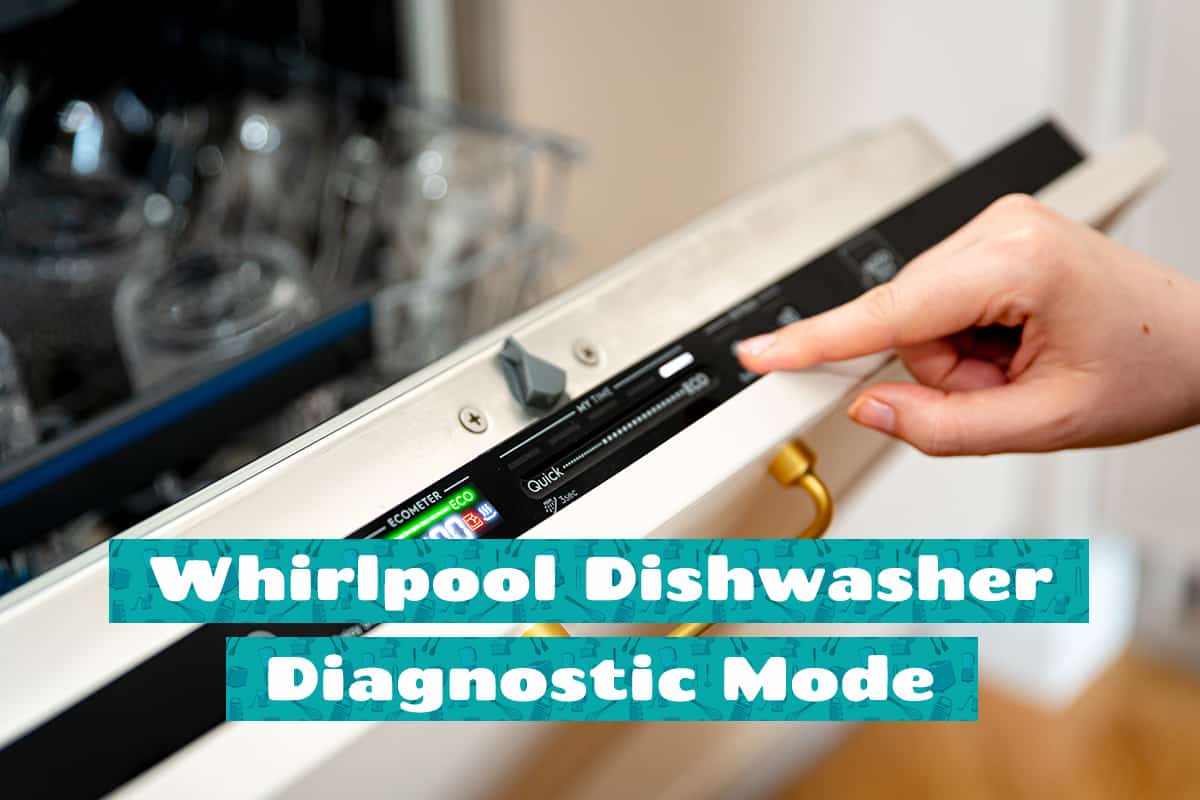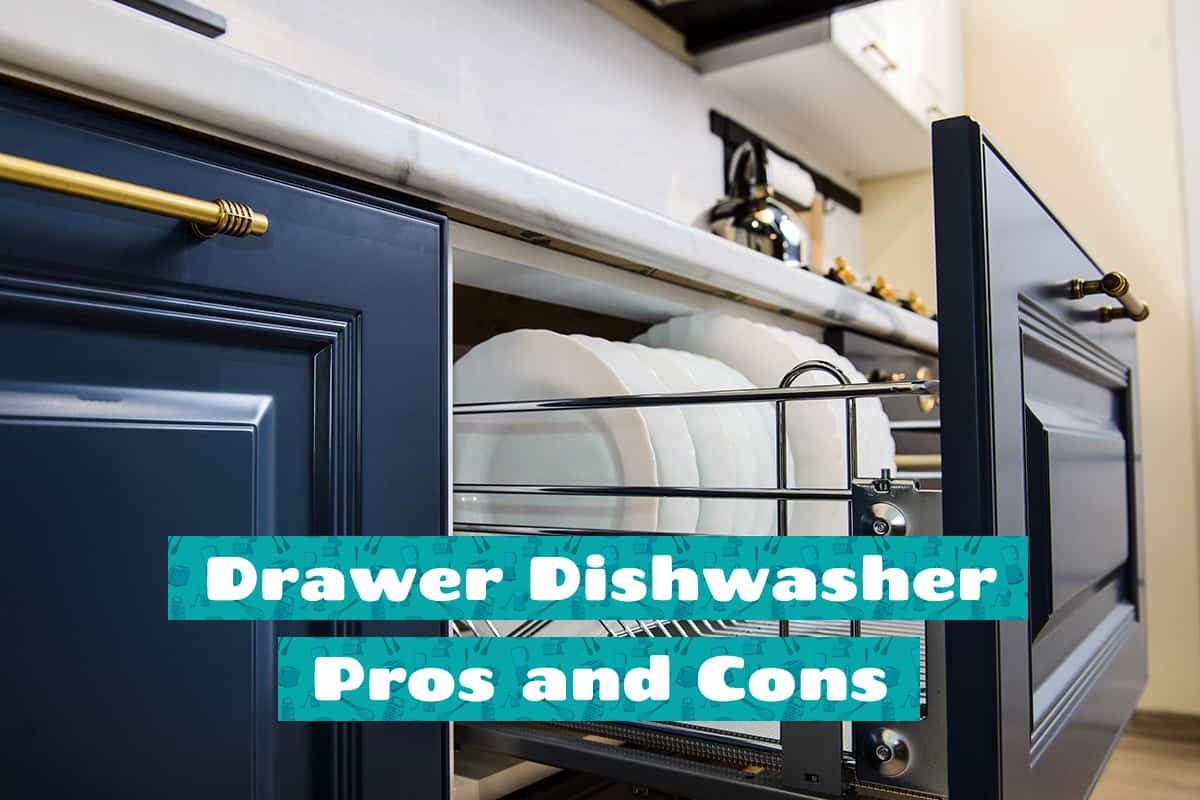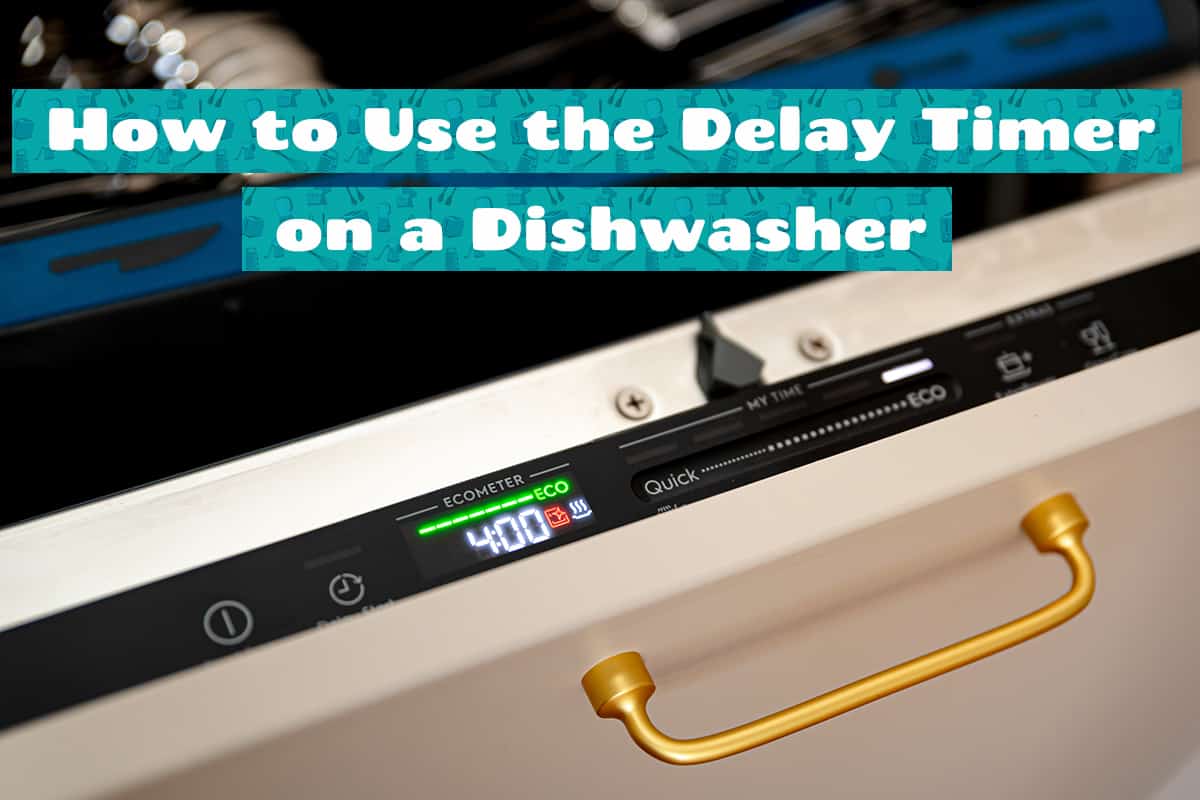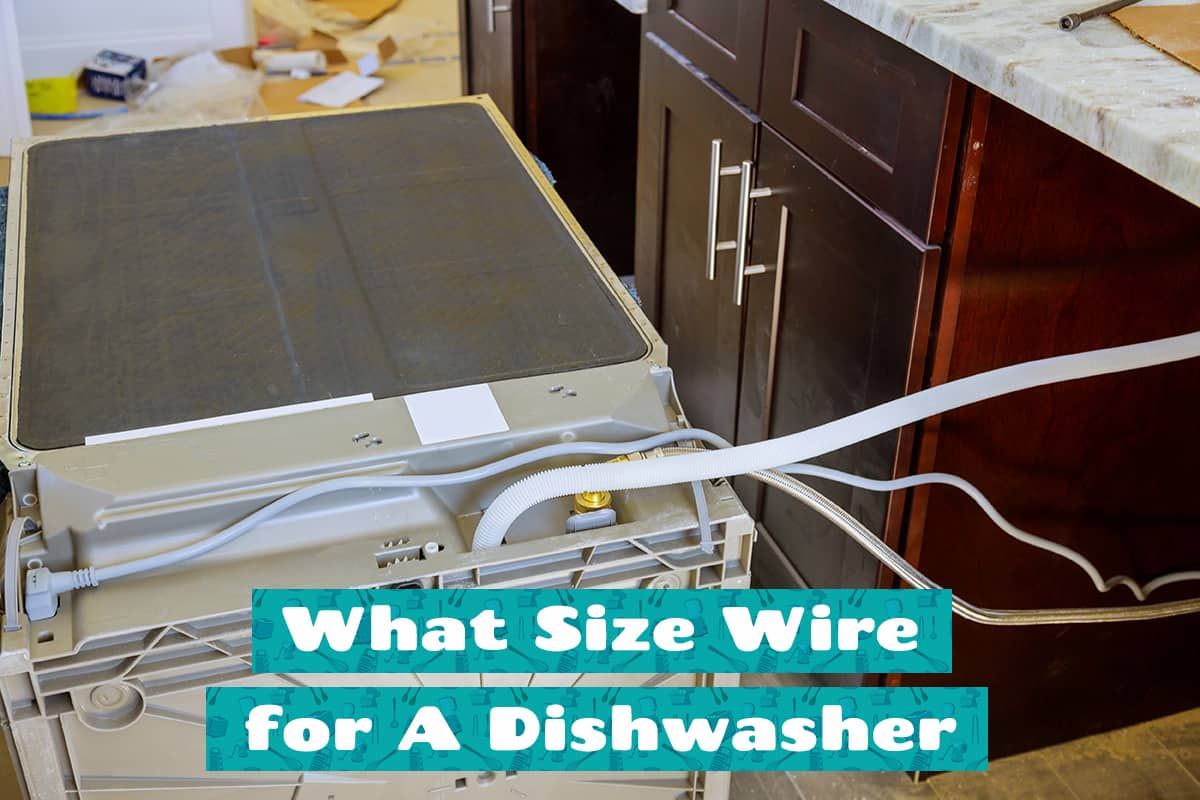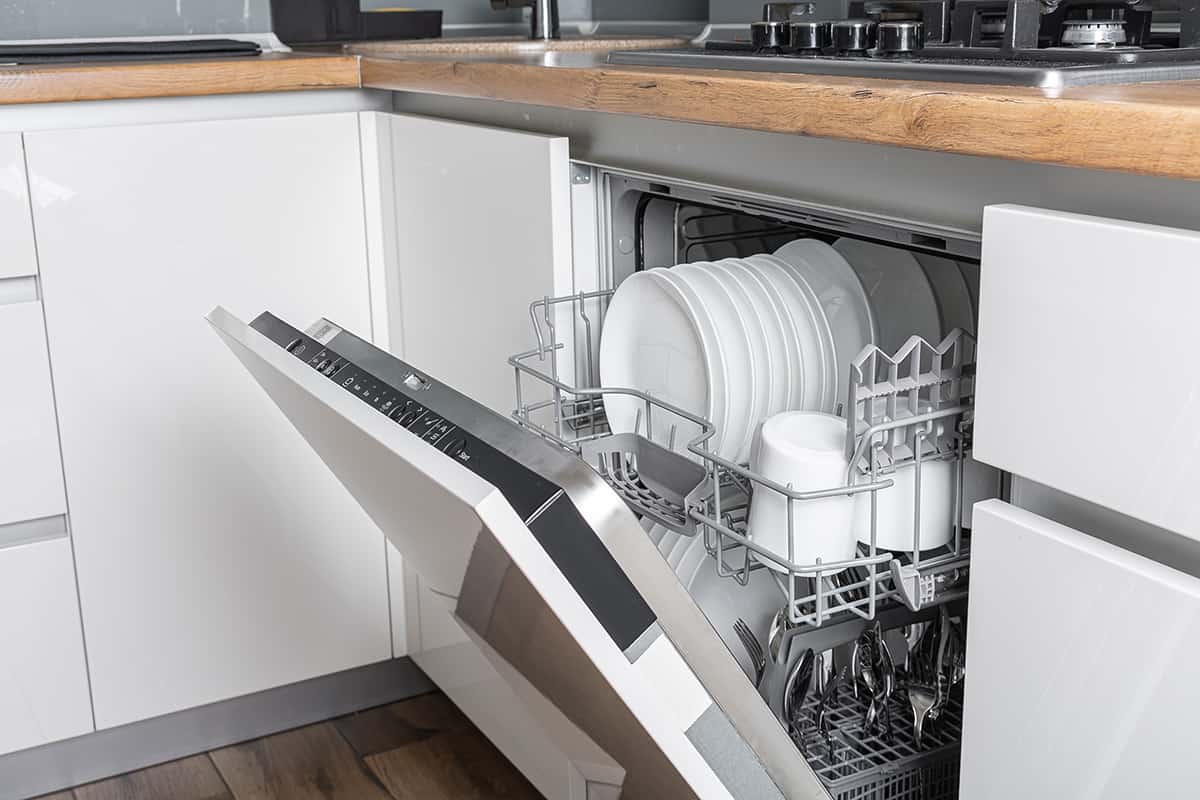Dishwashers are an essential part of many modern homes, making our lives easier by cleaning our dishes automatically. But there’s one question many people have: are dishwashers hardwired or do they plug into an outlet?
Some dishwashers are hardwired, while others have a plug. Hardwired dishwashers connect directly to electrical wiring, whereas plug-in models use an outlet. The choice depends on your kitchen setup, preferences, and local regulations.
In this guide, we’ll explore the differences between hardwired and plug-in dishwashers, their advantages and disadvantages, and how to choose the best option for your home.
The Basics of Dishwasher Installation
Before we dive too deep into this topic, it’s necessary that we’re all on the same page to begin with. Here, we’ll quickly go over what hardwired dishwashers are and how they differ from the alternative: plug-in dishwashers.
What is a hardwired dishwasher?
A hardwired dishwasher connects directly to your home’s electrical system. An electrician usually installs it by connecting the wires from the dishwasher to the wires in your home. It doesn’t need an outlet to work, but it can be harder to move or replace.
What is a plug-in dishwasher?
A plug-in dishwasher uses an electrical cord and plug, just like many other appliances in your home. You simply plug it into an available outlet to make it work. This type of dishwasher is easier to install and move when needed, but it might not look as neat as a hardwired one.
Pros and Cons of Hardwired Dishwashers
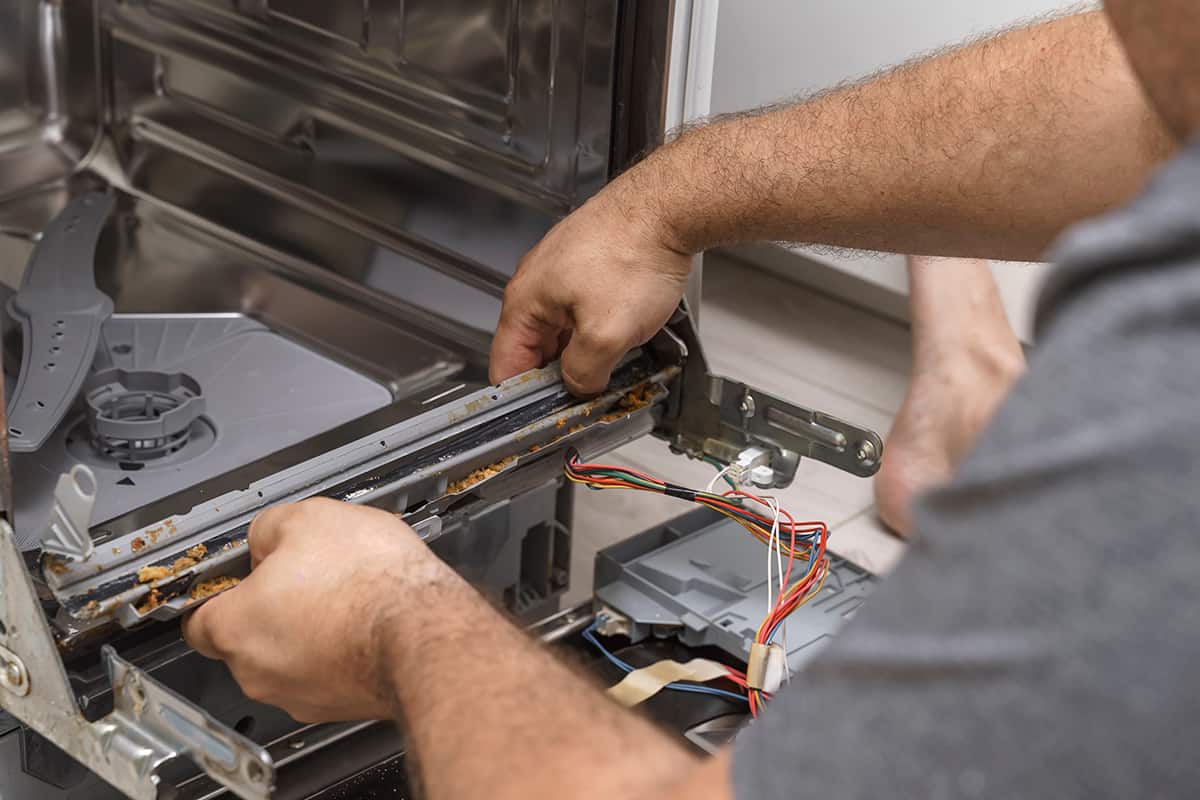
Now that we have the basics down, let’s explore the pros and cons of hardwired dishwashers. Alternatively, you can check out this guide on built-in (hardwired) vs. freestanding (plug-in) dishwashers.
Advantages of hardwiring
- Safety aspects—Hardwired dishwashers are often seen as safer because they’re directly connected to your home’s electrical system. This setup reduces the risk of accidents, like tripping over cords or the plug coming loose from the outlet.
- Aesthetics—With no visible cords, hardwired dishwashers can give your kitchen a cleaner and more organized look.
Disadvantages of hardwiring
- Difficulty in installation and removal—Installing a hardwired dishwasher usually requires a professional electrician, making the process more time-consuming and costly. If you need to move or replace the dishwasher, it can also be more challenging.
- Limited flexibility—Since hardwired dishwashers are directly connected to your home’s wiring, you can’t easily move them or use extension cords if needed.
Pros and Cons of Plug-In Dishwashers
Like its hardwired counterparts, plug-in dishwashers also come with an assortment of advantages and disadvantages
Advantages of plug-in models
- Ease of installation—Plug-in dishwashers are simpler to install because you only need to connect the water supply and drainage hoses, then plug the appliance into an outlet. There’s no need to hire an electrician or work with electrical wiring.
- Enhanced portability—If you want to move your dishwasher or take it with you when moving to a new home, a plug-in model is much easier to manage. You can unplug it and move it without worrying about the electrical connections.
Disadvantages of plug-in models
- Potential safety concerns—Plug-in dishwashers can have some safety risks. Cords can get damaged, which could lead to electrical issues, and people might trip over them. Also, if the plug isn’t secure, it could come loose and cause the dishwasher to stop working.
- Cluttered appearance—Having a visible power cord can make your kitchen look less tidy. If you prefer a clean and organized look, a hardwired dishwasher might be a better choice.
Factors to Consider When Choosing a Dishwasher
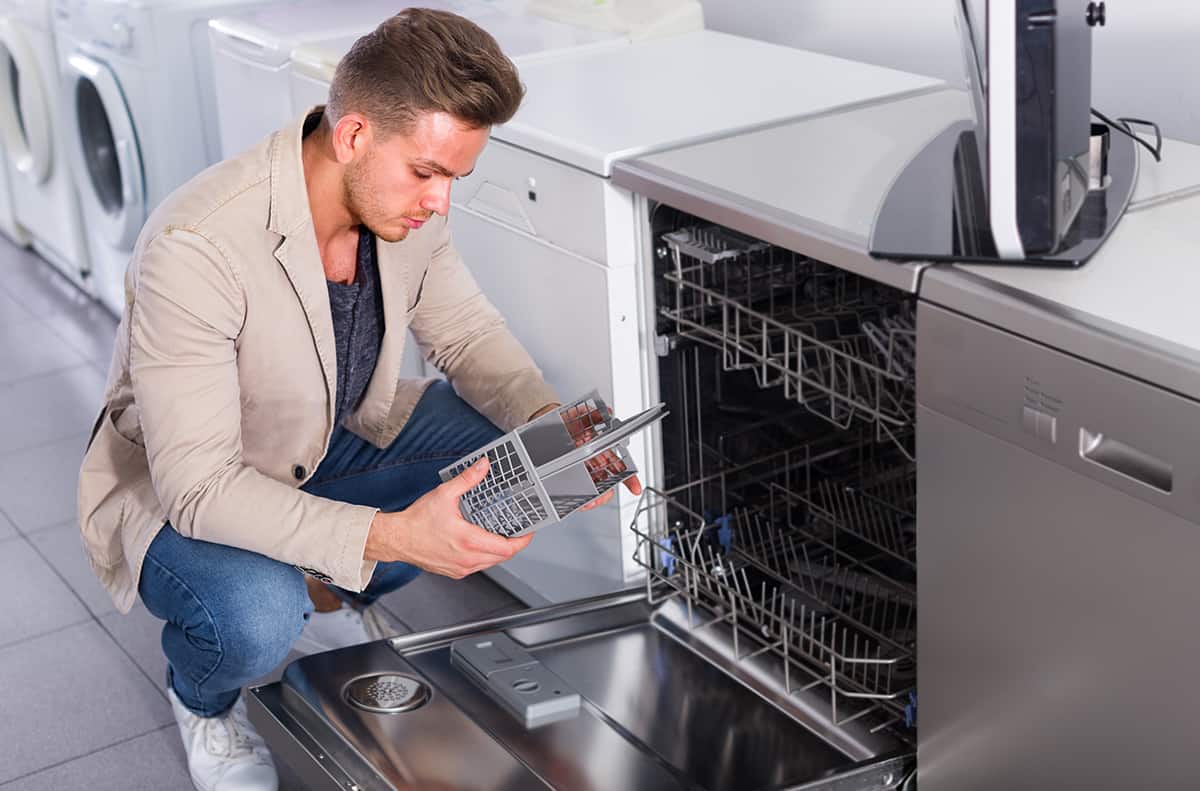
If you’re on the fence regarding which dishwasher setup to choose, here are a few key points to consider:
Local building codes and regulations
Different places have specific rules about how dishwashers should be installed. Some areas might require hardwired dishwashers, while others allow plug-in models. Check your local building codes and regulations to know what’s allowed in your area.
Kitchen layout and design
The design of your kitchen can impact the type of dishwasher you choose. If you want a seamless, organized look, a hardwired dishwasher might be the best option. However, if you need more flexibility in moving your dishwasher or if your kitchen has limited space, a plug-in model could be better.
Electrical capacity and requirements
Your home’s electrical system should be able to handle the power needs of your dishwasher. Hardwired dishwashers might require a dedicated circuit, which means you’ll need to have enough room in your electrical panel.
A plug-in dishwasher, on the other hand, can use an existing outlet, making it more convenient if your panel is full or if you don’t want to add a new circuit.
Budget and cost considerations
The cost of installing and maintaining a dishwasher can vary depending on the type you choose.
Hardwired dishwashers might be more expensive to install because you’ll likely need to hire an electrician. However, they could save you money in the long run if they’re more energy-efficient.
Plug-in dishwashers are generally easier and less expensive to install, but they might cost more in energy bills if they’re less efficient. Think about your budget and the long-term costs when choosing between hardwired and plug-in options.
Long-term usage and appliance lifespan
Consider how long you plan to use your dishwasher and whether you’ll be moving in the future. If you’ll be staying in your home for a long time, a hardwired dishwasher could be a better investment. However, if you plan to move or want the flexibility to change your kitchen layout, a plug-in dishwasher might be more suitable.
FAQs
1. Do most modern dishwashers come hardwired or with a plug?
Nowadays, many modern dishwashers do not come with a plug, giving the user the chance to decide whether or not to go the hardwired route. In some areas, local building codes and regulations might require hardwired dishwashers. Before buying a dishwasher, it’s essential to check your local rules and consider the type of wiring that will work best for your kitchen.
2. Is it more energy-efficient to have a hardwired or plug-in dishwasher?
In general, the wiring type does not significantly impact the energy efficiency of a dishwasher. Instead, focus on finding a model with features like a soil sensor, which adjusts the wash cycle based on how dirty the dishes are, or an eco-friendly cycle, which uses less water and energy.
The energy efficiency of a dishwasher depends more on the appliance itself than on the type of wiring. Both hardwired and plug-in dishwashers can be energy-efficient, depending on the specific model and its features.
When shopping for a dishwasher, look for the Energy Star label, which indicates that the appliance meets or exceeds energy efficiency guidelines set by the government. This label can be found on both hardwired and plug-in dishwashers.
3. Can I install a hardwired dishwasher myself, or should I hire a professional?
Installing a hardwired dishwasher involves working with electrical wiring, which can be dangerous if you don’t have experience or the proper knowledge. It’s usually best to hire a professional electrician to install a hardwired dishwasher to ensure that the job is done safely and correctly.
A plug-in dishwasher, on the other hand, is much easier to install and usually doesn’t require professional help. You’ll need to connect the water supply and drainage hoses and then plug the appliance into an outlet.
If you’re comfortable with basic plumbing tasks, you can likely install a plug-in dishwasher yourself. However, if you’re unsure or have any concerns, it’s always a good idea to consult a professional to avoid potential issues or damage.

